The Impact of Social Media Policies on Employee Behavior and Rights
VerifiedAdded on 2021/05/31
|5
|794
|405
Report
AI Summary
This report summarizes a qualitative study examining the implications of social media policies on employee behavior, particularly focusing on off-duty online conduct. The study highlights the challenges employers face regarding employee voice, privacy, and labor laws. It analyzes how social media policies can potentially suppress employee expression and expand employer regulation into employees' personal lives, raising concerns about the balance between protecting organizational interests and safeguarding employee rights to freedom of speech and privacy. The report uses the National Labor Relations Board's (NLRB) guidelines to understand the issues and suggests the need for amendments in labor laws, especially in countries like the USA and Australia, to protect employee privacy and communication rights while limiting language usage restrictions in social media policies. The research emphasizes the importance of considering the risks associated with social media policies to maintain a healthy employer-employee relationship.
1 out of 5
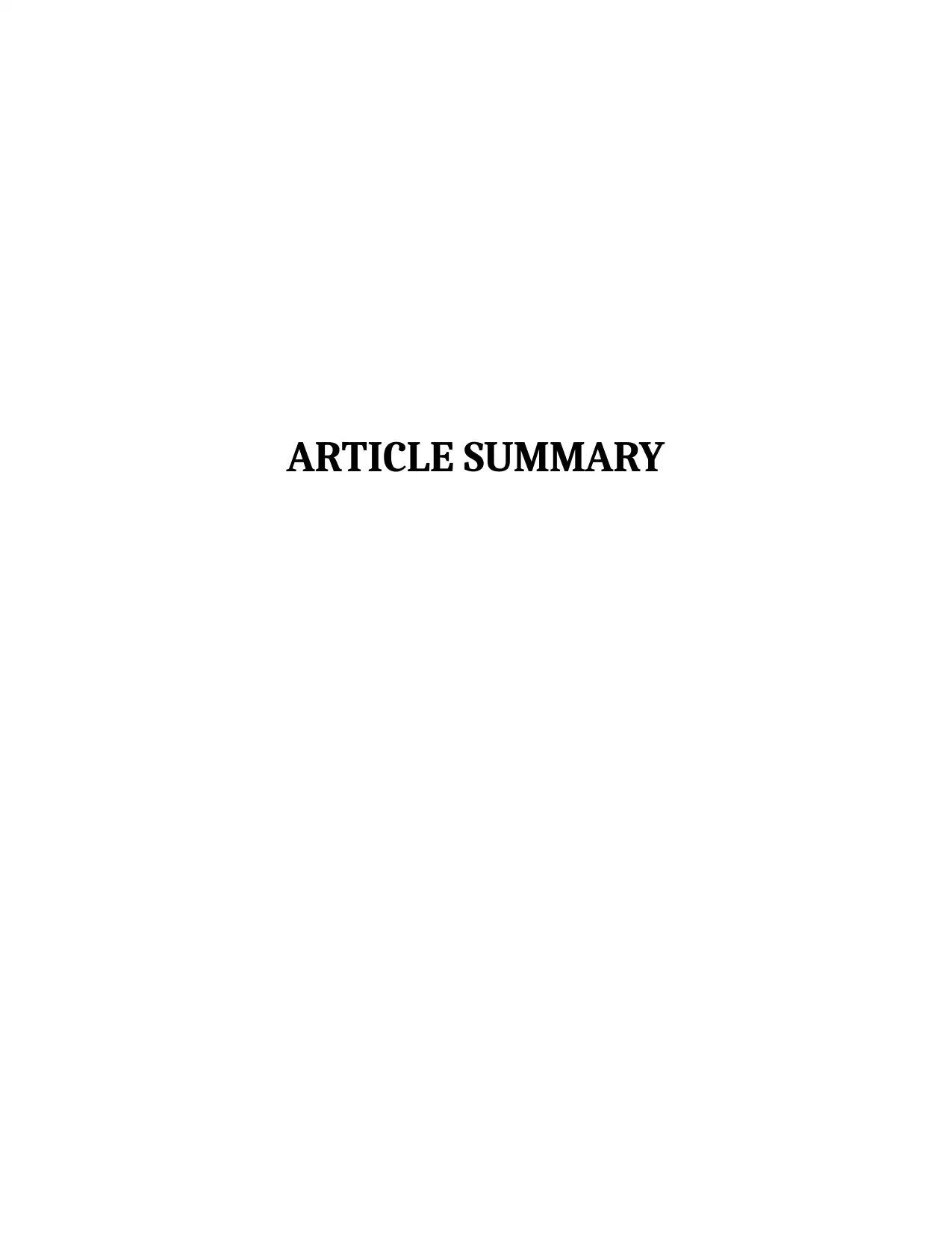
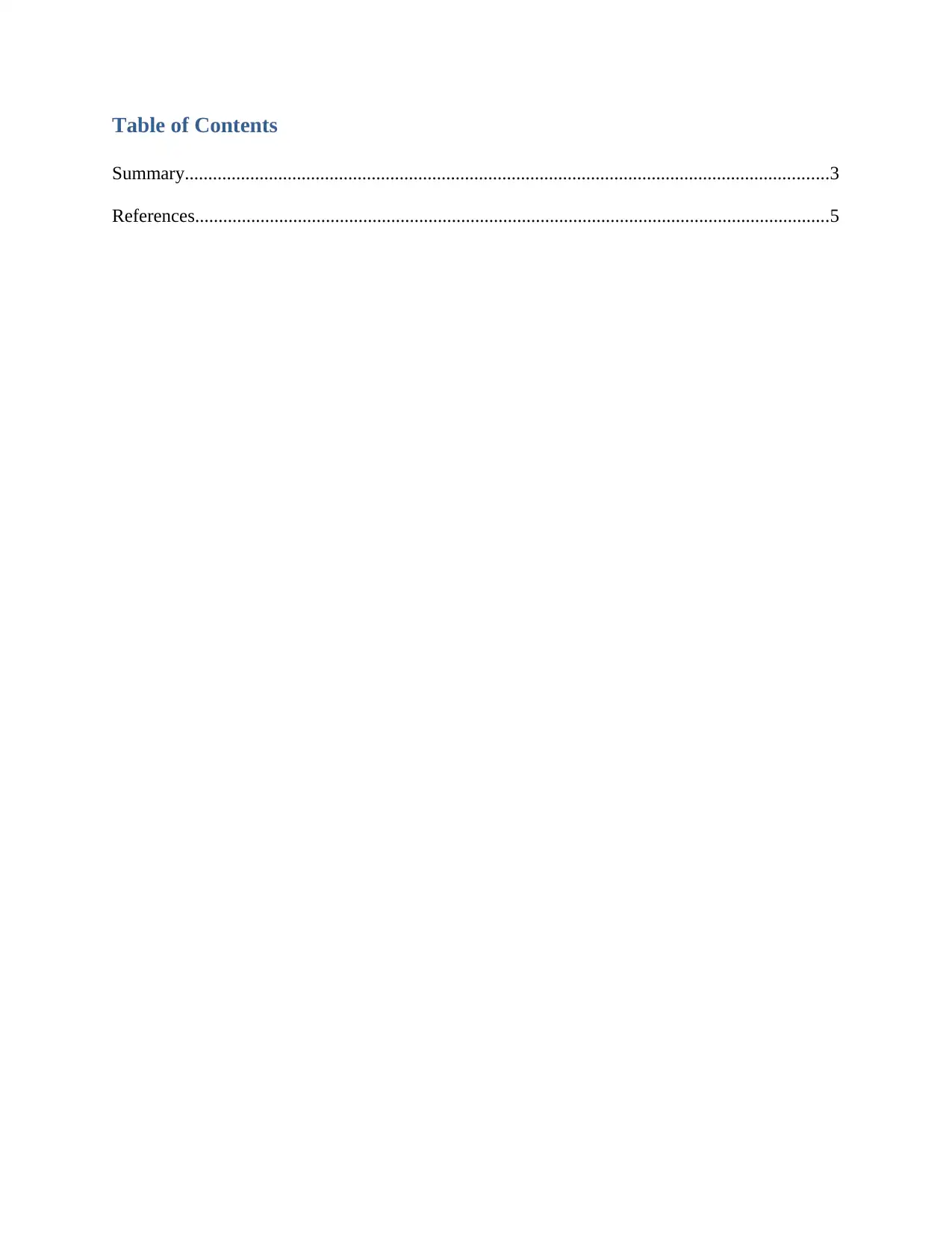
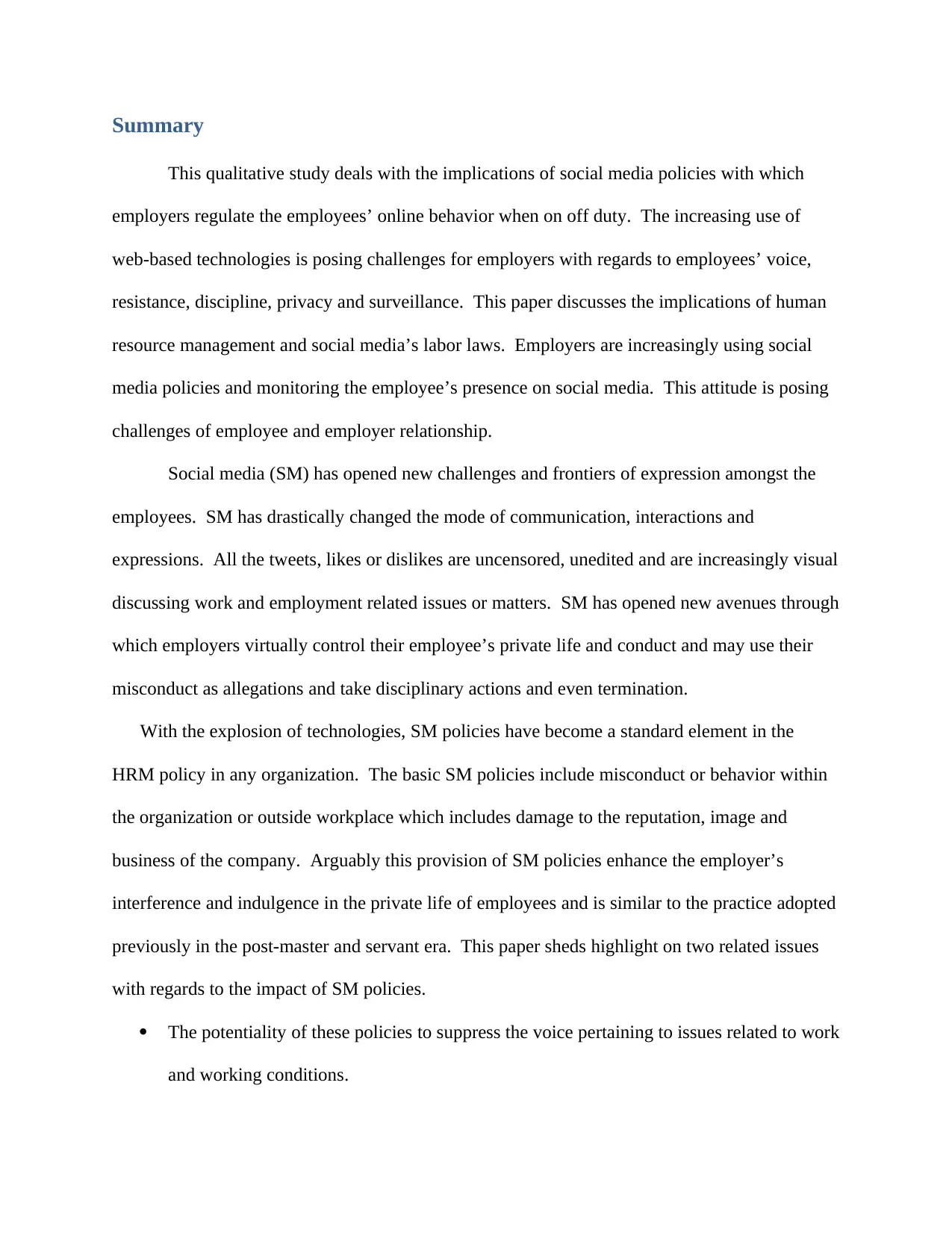

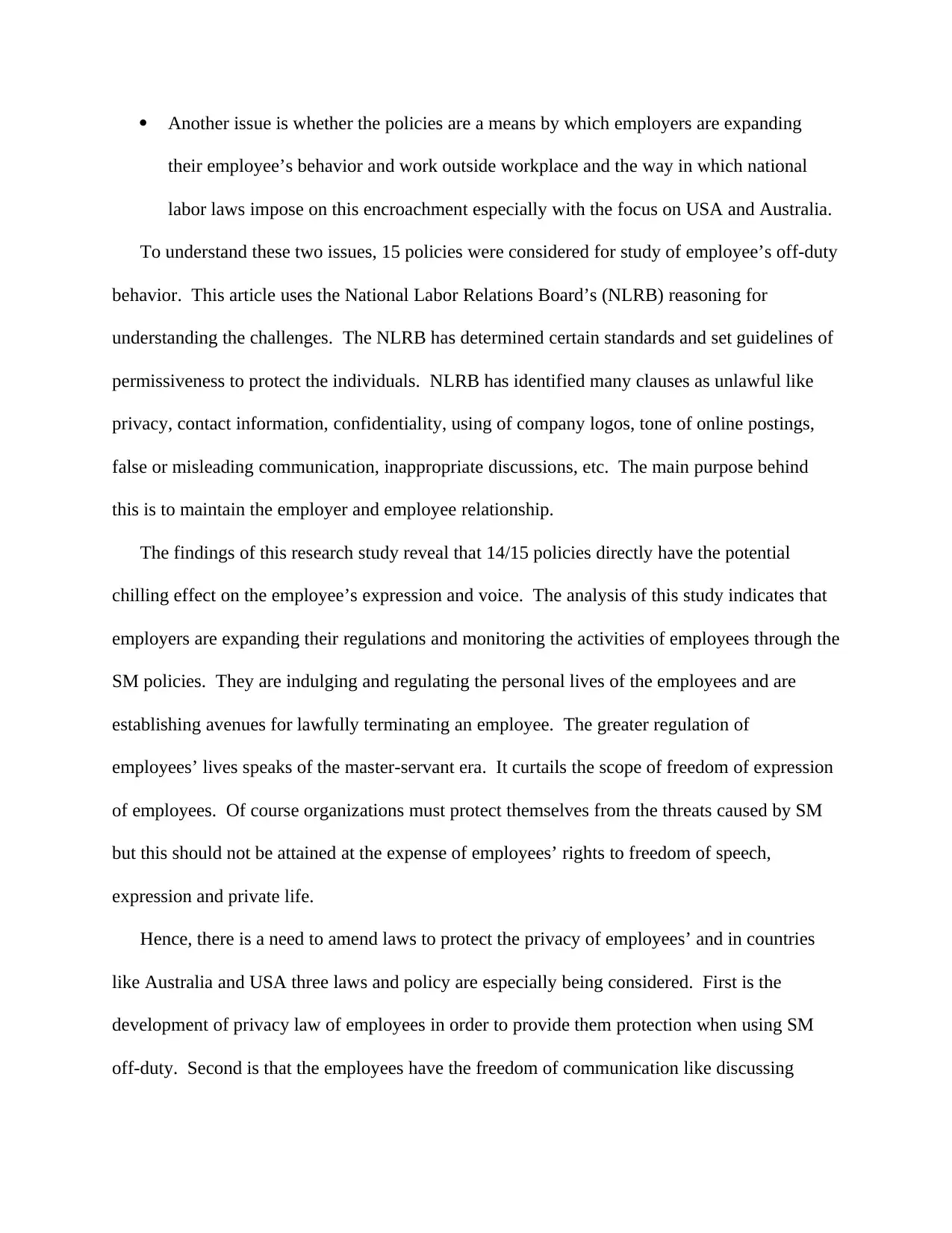
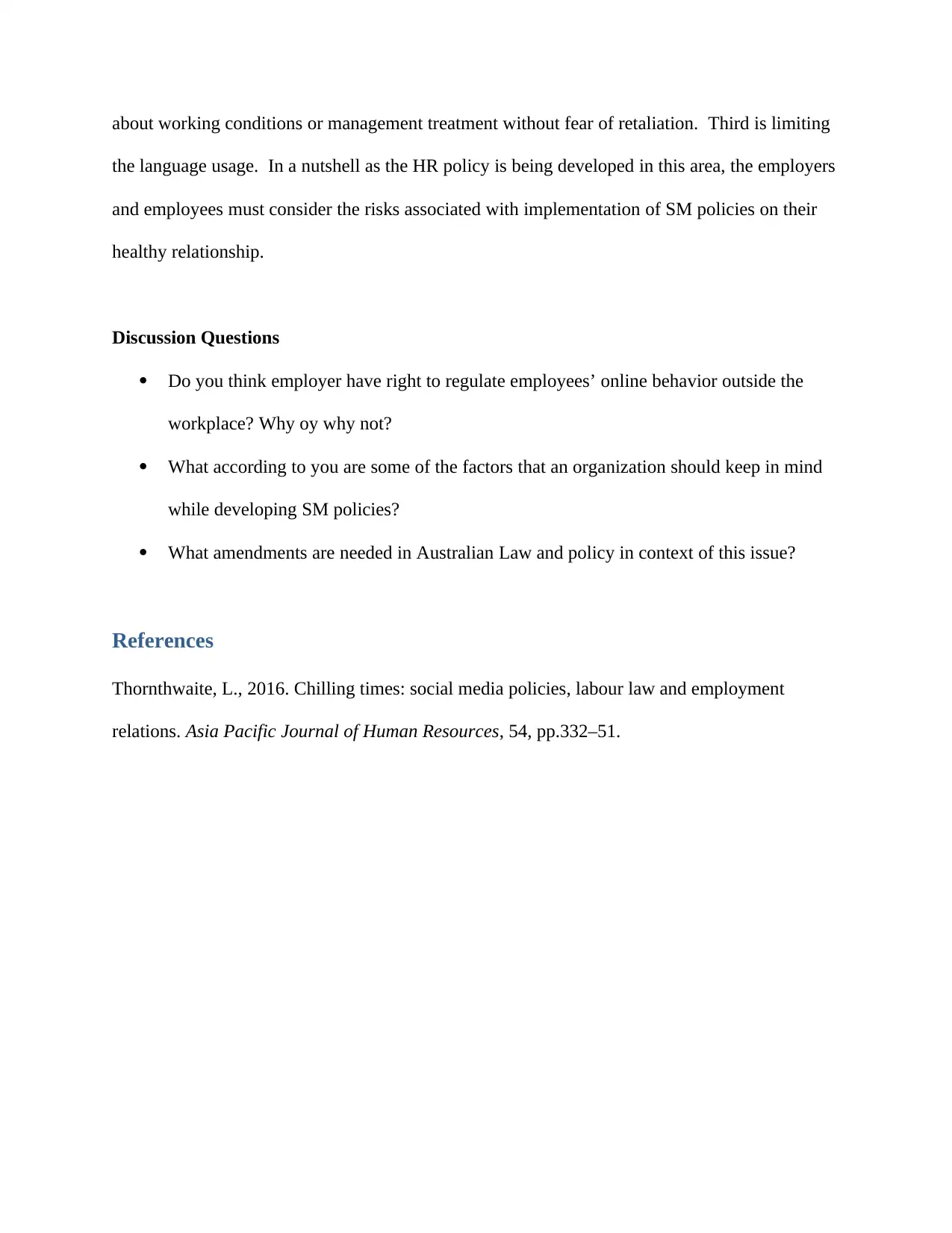
![[object Object]](/_next/static/media/star-bottom.7253800d.svg)